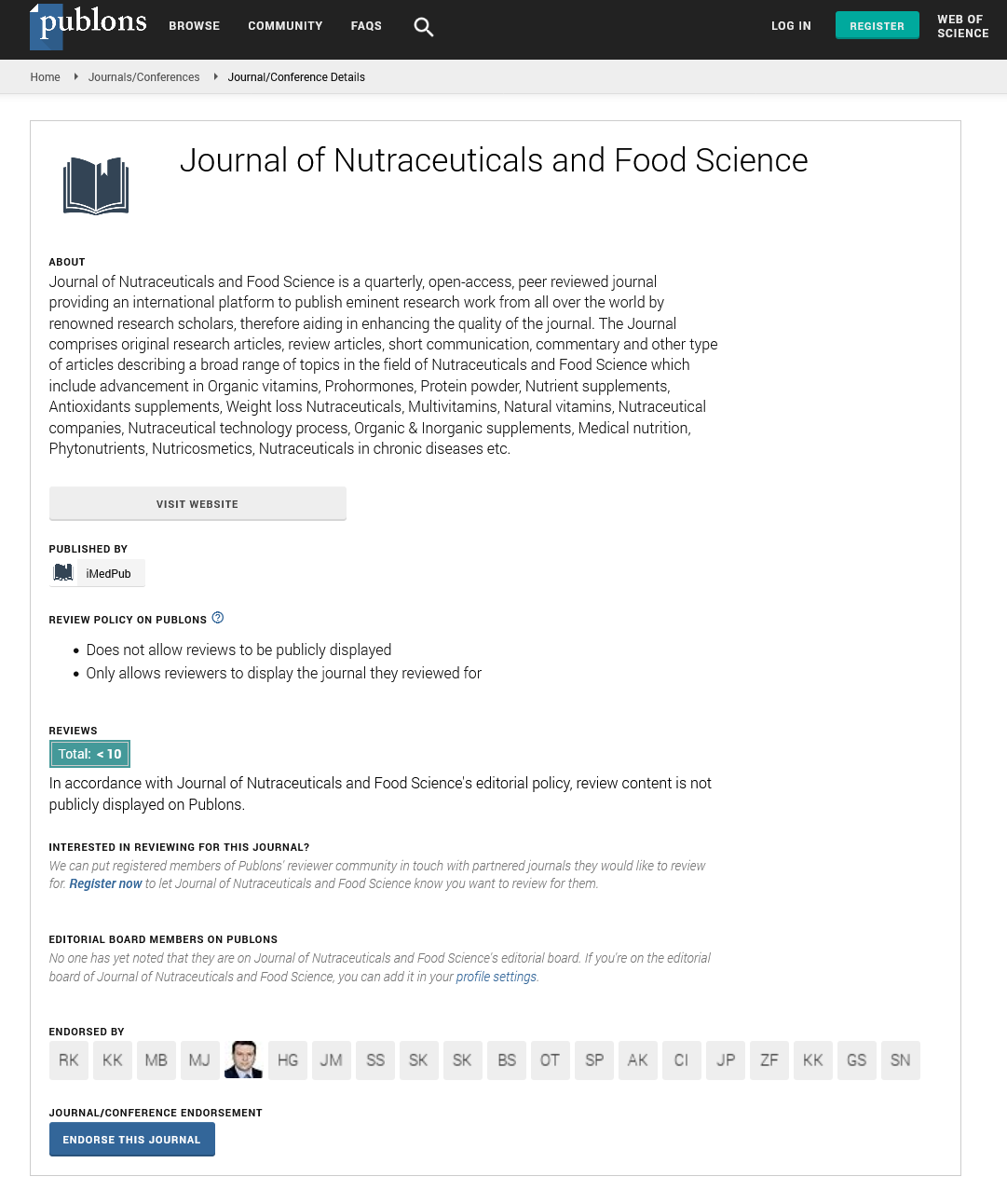Abstract
Quinoa: An ancient Andean grain and its nutritional profile
Quinoa is a plant species and it belongs to the family Chenopodiaceae. The scientific name of the quinoa is Chenopodium quinoa Willd. Quinoa is an ancient Andean grain with extraordinary nutritional profile and potential health benefits. Thousand years ago, Quinoa was domesticated by the people of Andes especially in the Bolivia and Peru. It is a pseudo grain with high nutritional profile because it is rich in the proteins, fiber, lipids, vitamins (B vitamins, vitamin C and vitamin E) and minerals (iron, zinc, copper, potassium, phosphorus and magnesium), and it also has an excellent balance of essential amino acids. Presence of lysine makes the quinoa unique among all other cereals. Quinoa contains high amount of health beneficial phytochemicals like phytoecdysteroids, phytosterols and saponins. Quinoa has positive effects on the cardiovascular, metabolic and gastrointestinal health in human beings. High dietary fiber and PUFAs with good stability increases its potential to treat cardiovascular diseases, hypercholesterolemia and obesity. Quinoa contains 2.3% of disaccharides and 2% monosaccharides. The flour of quinoa contains high percentage of maltose and D-xylose and low contents of fructose and glucose. Quinoa is considered as one of the best vegetal protein source and protein quality and quantity is usually superior as compare to other cereals. Quinoa has physicochemical characteristics like freeze stability and viscosity. The quinoa starch ranges from 54.1% to 64.25 of dry seed weight and it has low glycemic index. Quinoa is a good source of dietary fiber ranges from 2.6% to 10% of total weight of grain and 22% fiber content is soluble and 78% insoluble. The oil content in quinoa ranges from 2% to 10% and this amount is higher as compare to maize. Because of the absence of gluten, quinoa is acceptable and tolerable to celiac patients and the people who allergic to wheat. For adopting a healthy lifestyle, quinoa can be used in daily diets in the form of cookies, breads and pasta. Quinoa has been used by the National Aeronautics and Space Administration (NASA) because of its versatility in meeting the demands of humans during space missions.
Author(s): Muhammad Kamil Fareed
Abstract | Full-Text | PDF
Share this

Google scholar citation report
Citations : 393
Journal of Nutraceuticals and Food Science received 393 citations as per google scholar report
Journal of Nutraceuticals and Food Science peer review process verified at publons
Abstracted/Indexed in
- Google Scholar
- Publons
- Secret Search Engine Labs
Open Access Journals
- Aquaculture & Veterinary Science
- Chemistry & Chemical Sciences
- Clinical Sciences
- Engineering
- General Science
- Genetics & Molecular Biology
- Health Care & Nursing
- Immunology & Microbiology
- Materials Science
- Mathematics & Physics
- Medical Sciences
- Neurology & Psychiatry
- Oncology & Cancer Science
- Pharmaceutical Sciences


